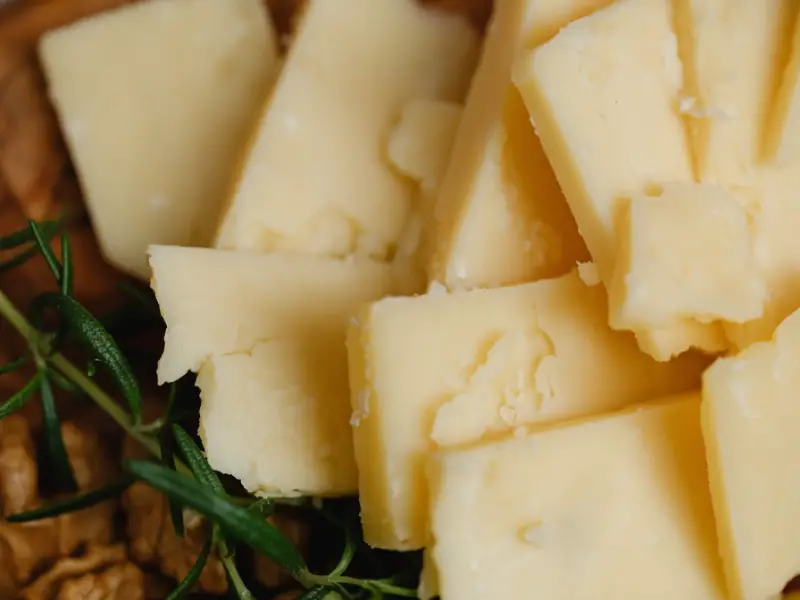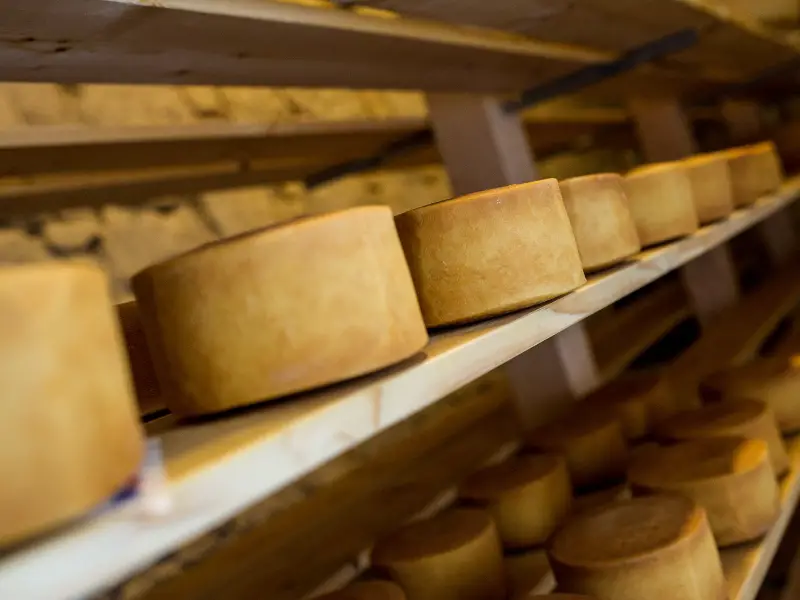Rabbits are herbivores and have a unique digestive system that is designed to process plant-based foods. However, many pet owners wonder if their furry friends can eat other foods, such as cheese. Cheese is a popular snack for humans and is often used as a treat for dogs, but is it safe for rabbits to eat?
While rabbits can technically eat cheese, it is not recommended as a regular part of their diet. Cheese is high in fat and protein, which can be difficult for rabbits to digest. Additionally, most rabbits are lactose intolerant, meaning they cannot properly digest milk-based products like cheese. Consuming cheese can lead to digestive issues such as diarrhea, bloating, and gas in rabbits.
It is important to note that rabbits have specific dietary requirements and should primarily consume hay, fresh vegetables, and a small amount of pellets. If you want to give your rabbit a treat, there are plenty of safe options such as fresh fruits or vegetables. While cheese may seem like a harmless snack, it is best to avoid feeding it to your rabbit to prevent any potential health issues.
Why is cheese bad for rabbits?
Cheese is not a recommended food for rabbits. It is high in fat, calories, and sodium, which can cause digestive problems, obesity, and other health issues in rabbits. Cheese is also low in fiber, which is essential for the proper functioning of a rabbit’s digestive system.
Rabbits are herbivores and have a delicate digestive system that is not designed to digest dairy products like cheese. Cheese contains lactose, which rabbits cannot digest properly, leading to gastrointestinal problems like diarrhea, bloating, and gas.
The high sodium content in cheese can also lead to dehydration in rabbits, which can be fatal if left untreated. Rabbits are sensitive to salt, and excessive consumption of cheese can cause an imbalance in their electrolyte levels.
In addition, cheese is high in calories, and overfeeding rabbits with cheese can lead to obesity, which can cause health problems like joint pain, heart disease, and respiratory problems.
Overall, cheese is not a suitable food for rabbits and should be avoided. Instead, rabbits should be fed a diet that is high in fiber, low in fat, and rich in essential nutrients like hay, fresh vegetables, and fruits.
Risks of Feeding Cheese to Rabbits

Feeding cheese to rabbits is not recommended as it can cause several health problems. Cheese is high in fat and salt, which can lead to obesity, digestive issues, and kidney problems in rabbits.
Digestive Issues
Rabbits have a delicate digestive system, and feeding them cheese can cause gastrointestinal problems such as diarrhea, bloating, and gas. Cheese is difficult for rabbits to digest, and it can lead to a buildup of harmful bacteria in their gut.
Obesity
Cheese is high in fat and calories, and feeding it to rabbits can lead to obesity. Overweight rabbits are more prone to health problems such as heart disease, respiratory issues, and joint problems.
Kidney Problems
Cheese is also high in salt, which can cause kidney problems in rabbits. Rabbits are sensitive to salt, and excessive salt intake can lead to dehydration, kidney damage, and even death.
Conclusion
In conclusion, feeding cheese to rabbits is not recommended as it can cause several health problems. Rabbits should be fed a diet that is high in fiber and low in fat and salt. If you want to give your rabbit a treat, consider feeding them fruits and vegetables that are safe for rabbits.
What to do if your rabbit ate cheese?

If your rabbit ate cheese, don’t panic. Cheese is not toxic to rabbits, but it is not a natural part of their diet. However, it is important to monitor your rabbit for any signs of digestive upset, such as diarrhea or lethargy.
Here are some steps you can take if your rabbit has eaten cheese:
- Remove the cheese: If your rabbit has access to the cheese, remove it from their reach to prevent it from eating more.
- Offer hay and water: Offer your rabbit fresh hay and water to help aid digestion and keep them hydrated.
- Monitor your rabbit: Keep a close eye on your rabbit for the next 24-48 hours. Look for any signs of digestive upset, such as diarrhea, lack of appetite, or lethargy.
- Contact your veterinarian: If your rabbit shows any signs of illness, contact your veterinarian. They can provide guidance on how to treat your rabbit and prevent any further health issues.
Remember, cheese should not be a regular part of your rabbit’s diet. It is high in fat and can lead to obesity and other health issues. Stick to feeding your rabbit a balanced diet of hay, fresh vegetables, and a small amount of pellets.
Other Food Alternatives for Cheese
While cheese can be enjoyed by rabbits in moderation, there are other food alternatives that can provide essential nutrients and variety to their diet. Here are some options to consider:
Leafy Greens
Leafy greens are an excellent source of fiber, vitamins, and minerals for rabbits. Some popular options include:
- Kale
- Spinach
- Arugula
- Romaine lettuce
- Swiss chard
It’s important to note that iceberg lettuce should be avoided as it has little nutritional value.
Vegetables
Vegetables can also be a great addition to a rabbit’s diet. Some options to consider include:
- Carrots
- Bell peppers
- Broccoli
- Cucumber
- Zucchini
It’s important to introduce new vegetables slowly and in small quantities to avoid digestive issues.
Fruits
Fruits can be a tasty treat for rabbits, but they should be given in moderation due to their high sugar content. Some options to consider include:
- Apples
- Bananas
- Blueberries
- Papaya
- Pineapple
It’s important to remove any seeds or pits before feeding fruits to rabbits.
Hay
Hay is an essential part of a rabbit’s diet as it provides fiber and helps maintain healthy teeth. Some options to consider include:
- Timothy hay
- Orchard grass hay
- Meadow hay
It’s important to provide fresh hay daily and ensure it is free of dust and mold.
Overall, it’s important to provide a balanced diet for rabbits that includes a variety of foods to ensure they receive all the necessary nutrients.
Conclusion
In conclusion, rabbits can eat cheese, but it should only be given to them in moderation and as an occasional treat. Cheese is high in fat and can lead to obesity and digestive problems in rabbits if given in excess. It is important to remember that a rabbit’s diet should consist primarily of hay, fresh vegetables, and a small amount of pellets.
While cheese may be a tasty treat for rabbits, it is important to choose the right type of cheese. Soft cheeses, such as brie or camembert, should be avoided as they contain mold that can be harmful to rabbits. Hard cheeses, such as cheddar or parmesan, are a better option as they have lower moisture content and are less likely to cause digestive issues.
When giving cheese to rabbits, it is important to introduce it slowly and in small quantities. This will allow their digestive system to adjust to the new food and prevent any potential health issues. It is also important to monitor the rabbit’s behavior and health after giving them cheese to ensure that they do not have any adverse reactions.
Overall, while cheese can be a tasty treat for rabbits, it should only be given in moderation and as part of a balanced diet. By following these guidelines, rabbit owners can ensure that their furry friends stay healthy and happy.
Related Articles:

